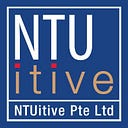This week we went through the AI for Everyone workshop (AI4E), conducted by AI Singapore. We were introduced to modern AI technologies and its real world applications. It was relevant information, which helped us understand how to leverage on Artificial Intelligence when building our products and services.

The workshop helped to demystify the technical jargon often thrown around.

Traditional Programming refers to any manually created program that uses input data and runs on a computer to produce the output.

However, in Machine Learning, the algorithm automatically formulates the rules from the data. Unlike traditional programming, machine learning is an automated process. It can increase the value of your embedded analytics in many areas, including data prep, natural language interfaces, automatic outlier detection, recommendations, and causality and significance detection. All of these features help generate insights at a faster speed and reduce decision bias.
This yields powerful insights that can be used to predict future outcomes.
In the foreseeable future, it is likely that humans will automate more menial task to increase our productivity and quality of life. However, we should also be cognizant of the fact that in AI/Machine learning models, the “input” data are provided by programmers, who are also humans with inherent biases.
The models and systems we create and train are a reflection of ourselves. So it’s no surprise to find that AI is learning gender bias from humans. For instance, natural language processing (NLP), a critical ingredient of common AI systems like Amazon’s Alexa and Apple’s Siri, among others, has been found to show gender biases – and this is not a standalone incident.
There have been several high profile cases of gender bias, including computer vision systems for gender recognition that reported higher error rates for recognizing women, specifically those with darker skin tones. In order to produce technology that is more fair, there must be a concerted effort from researchers and machine learning teams across the industry to correct this imbalance. — HBR
Thus, we have an obligation to create technology that is effective and fair for everyone.
It was definitely very insightful for all of us as we are heavily involved using tech in our work at NTUitive. The lessons learnt will come in handy in the near future.
As the ideasinc veni workshops come to a close, the teams are preparing for the FINAL ideasinc.veni Investment Game — NTUit.io. This is similar to the one we did in Week 11.
To rehash — In the NTUit.io game, there are two roles:
(1) — The Investor, and the (2) — (Business) Managers.
Investor
The Investor’s main interest is for their portfolio valuation to increase. This happens by buying shares of a company earlier on when it starts cheap, and rallying others on board to increase the valuation. These actions would lead to an increase in share price and the investor’s portfolio’s valuation.
Management
The management’s main interest is to get their business valuation to increase. This is achieved by getting investors to listen to your pitch and giving the right pitch so investors would invest.
This time round the VB18 team will be taking on the role of the investors, forcing us to consider what our investors might be concerned with. This will surely give us a different perspective.

That’s all from us this week!
Happy Holidays to everybody, and Merry Christmas to all who celebrate it :)

